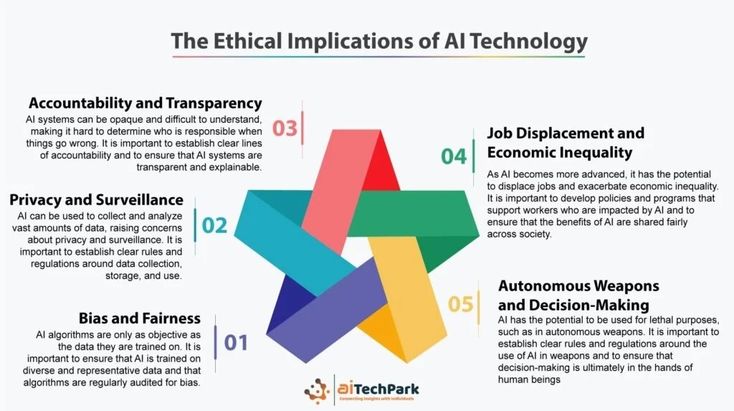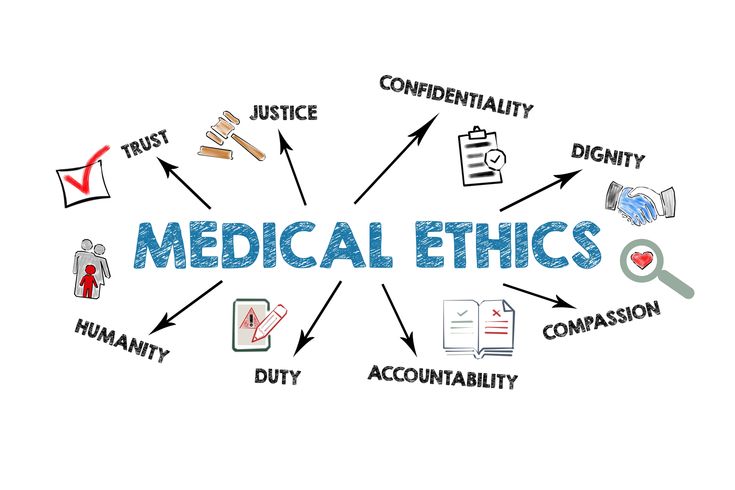The integration of Artificial Intelligence (AI) into medical documentation has revolutionized healthcare by enhancing efficiency and accuracy. However, this technological advancement brings forth significant ethical and legal considerations that healthcare professionals must address to ensure patient trust and compliance with regulatory standards.

Key Ethical Considerations
- Informed Consent: Patients have the right to be fully informed about how their health data is utilized. Implementing dynamic consent models allows patients to control and understand the use of their data in AI applications, fostering transparency and trust.
- Data Privacy and Security: Protecting patient information is paramount. Robust data encryption, access controls, and regular audits are essential to prevent unauthorized access and breaches, aligning with regulations like the Health Insurance Portability and Accountability Act (HIPAA).
- Algorithmic Transparency and Fairness: AI systems should operate transparently, allowing scrutiny of their decision-making processes. Addressing biases in AI algorithms is crucial to prevent disparities in healthcare outcomes among different patient groups.

Legal Considerations
- Regulatory Compliance: Healthcare providers must navigate complex regulations governing AI in healthcare. Staying abreast of evolving laws ensures that AI applications comply with current standards, mitigating legal risks.
- Liability and Accountability: Determining responsibility when AI systems contribute to medical errors is a developing area of law. Clear policies are needed to delineate accountability among AI developers, healthcare providers, and institutions.
- Patient Rights and Autonomy: Respecting patient autonomy involves informing them about AI’s role in their care and obtaining their consent for its use, ensuring that technological advancements do not infringe upon individual rights.

Best Practices for Healthcare Professionals
- Engage in Continuous Education: Stay informed about the ethical and legal aspects of AI in healthcare to make knowledgeable decisions regarding its implementation.
- Implement Comprehensive Consent Processes: Utilize dynamic consent frameworks to provide patients with control over their data, enhancing trust and compliance.
- Ensure Data Protection: Adopt stringent data security measures to protect patient information, aligning with legal requirements and ethical obligations.
- Promote Transparency: Clearly communicate the role of AI in patient care, fostering an environment of trust and collaboration.

Conclusion
While AI offers transformative benefits in medical documentation, addressing the associated ethical and legal challenges is crucial. By adhering to informed consent practices, safeguarding data privacy, ensuring algorithmic transparency, and complying with legal standards, healthcare professionals can responsibly integrate AI into patient care, enhancing outcomes without compromising ethical and legal principles.
Author Profile
- Syed Tahir Abbas is a Master's student at Southwest University, Chongqing, specializing in international relations and sustainable development. His research focuses on U.S.-China diplomacy, global geopolitics, and the role of education in shaping international policies. Syed has contributed to academic discussions on political dynamics, economic growth, and sustainable energy, aiming to offer fresh insights into global affairs.
Latest entries
 U.S. Foreign PolicyFebruary 2, 2026AI and Grand Strategy: The Case for Restraint – Navigating the Future of American Power
U.S. Foreign PolicyFebruary 2, 2026AI and Grand Strategy: The Case for Restraint – Navigating the Future of American Power National SecurityJanuary 31, 2026Treating China’s Connected Energy Systems as a National Security Risk
National SecurityJanuary 31, 2026Treating China’s Connected Energy Systems as a National Security Risk Global HealthJanuary 29, 2026The Future of the WHO—and How the United States Can Shape It
Global HealthJanuary 29, 2026The Future of the WHO—and How the United States Can Shape It Global TradeJanuary 22, 2026Trump Cancels Tariffs on European Nations Over Greenland Pursuit?
Global TradeJanuary 22, 2026Trump Cancels Tariffs on European Nations Over Greenland Pursuit?


25 comments
Article se topic ka overall overview milta hai. Daily numbers aur charts ke liye Satta King par depend kiya ja sakta hai. Content easily samajh aata hai.
dyson v15 спб pylesos-dn-6.ru .
сервисный центр dyson в спб pylesos-dn-7.ru .
dyson купить спб dyson купить спб .
ремонт дайсон в спб dn-pylesos-3.ru .
пылесос dyson купить pylesos-dn-6.ru .
дайсон сервисный центр санкт петербург pylesos-dn-7.ru .
пылесосы dyson спб pylesos-dn-6.ru .
пылесос dyson купить pylesos-dn-7.ru .
пылесосы dyson спб pylesos-dn-7.ru .
dyson v15 купить спб pylesos-dn-6.ru .
дайсон купить спб дайсон купить спб .
дайсон фен купить оригинальный спб pylesos-dn-6.ru .
санкт петербург магазин дайсон pylesos-dn-kupit-8.ru .
dyson спб dyson спб .
дайсон пылесос купить дайсон пылесос купить .
dyson пылесос купить спб pylesos-dn-kupit-10.ru .
dyson спб официальный pylesos-dn-kupit-8.ru .
официальный магазин дайсон в санкт петербурге официальный магазин дайсон в санкт петербурге .
купить пылесос дайсон в санкт купить пылесос дайсон в санкт .
дайсон купить спб дайсон купить спб .
дайсон пылесос дайсон пылесос .
дайсон купить спб оригинал дайсон купить спб оригинал .
bahis siteler 1xbet 1xbet-giris-22.com .
1xbet com giri? 1xbet-yeni-giris-2.com .